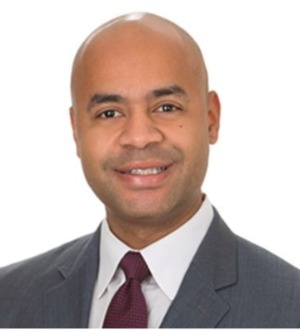Executive Summary
Note: On January 26, 2021, the DOL announced the withdrawal of Opinion Letter FLSA 2021-4, addressing host and hostess participation in non-traditional tip pools. The DOL stated this opinion letter and two others were issued prematurely because they are based on rules that have not gone into effect.
On January 15, 2021, the U.S. Department of Labor’s Wage and Hour Division released two opinion letters providing guidance on two respective issues pertaining to tipped employees. First, the DOL reiterated that under the December 30, 2020, Final Rule soon to go into effect, hosts and hostesses that are ineligible from participating in a traditional tip pool because, for example, they do not customarily and regularly receive tips, may participate in non-traditional tip pools that include both tipped and non-tipped employees, so long as the pool does not include any management employees and the pool participants are paid the full minimum wage. Second, the DOL clarified how overtime compensation is to be calculated in a situation where a tipped employee performs two or more different types of work in a single workweek, for which different rates of pay have been established, and receives tips and amounts charged as automatic gratuities or services charges.
Background
The Fair Labor Standards Act (FLSA) requires that covered, non-exempt employees receive at least the minimum wage for all hours worked and overtime pay at not less than time and one-half the regular rate of pay for all hours worked over 40 in a workweek.
However, the tip credit provision in section 3(m)(2) of the FLSA permits an employer to pay its tipped employees not less than $2.13 per hour in cash wages and take a tip credit equal to the difference between the cash wages paid and the minimum wage. Tipped employees are those who customarily and regularly receive more than $30 per month in tips. Under the current federal minimum wage of $7.25, the tip credit may not exceed $5.12 per hour. However, this amount is subject to change depending on the minimum wage of the state where the employer is located.
Host and Hostess Participation in a “Non-Traditional Tip Pool”:
In DOL Opinion Letter FLSA 2021-4, the DOL reiterated that section 531.54(d), scheduled to go into effect March 1, 2021, permits an employer to require tipped employees who are paid at least the full minimum wage to contribute tips to a non-traditional tip pool that includes non-tipped employees (such as hosts and hostesses), so long as: (1) the pool does not include any managers or supervisors and (2) the employer does not take a tip credit and pays the full minimum wage to both the tipped employees contributing to the pool and the non-tipped employees receiving tips from the pool. Importantly, the statutory requirements under section 3(m)(2)(A) applying to employers who take a tip credit will remain the same.
Calculating the Overtime Rate for a Tipped Employee:
DOL Opinion Letter FLSA 2021-5 explains that the rate of pay for an employee who performs two or more different types of work with different pay rates is the weighted average of such rates. Importantly, the DOL noted that any service charges should be calculated as part of the rate of pay. The employee’s total earnings (except for statutory exclusions) are computed to include the employee’s compensation during the workweek from all rates and are then divided by the total number of hours worked to determine the regular rate of pay. The overtime pay is then determined by calculating the halftime of the product of the regular rate of pay and the overtime hours.
The rate of pay in such a scenario would be calculated as follows:
Straight Time Wages=
rate 1 wages (hours worked x hourly rate) +
rate 2 wages (hours worked x hourly rate) +
service charges (if any)
Regular Rate of Pay= straight time wages / total hours worked
Overtime Pay Due=
regular rate of pay x
0.5 (half-time due for all hours worked over 40) x
overtime hours
Employers’ Bottom Line
Employers who do not take a tip credit may now incentivize non-tipped positions by offering a non-traditional tip pool that includes both tipped and non-tipped employees, so long as the aforementioned criteria are met. Additionally, the DOL’s recent guidance provides clarity for employers on how to calculate overtime for employees engaged in two or more different types of work with different pay rates and who also receive pay via services charges.
However, employers should consider the laws of the states in which they do business and whether they have adopted any rules similar to or more stringent than the federal standard. Additionally, there is a strong chance that the Biden administration will seek to roll back the implementation of these new rules and begin working on producing its own amendments. Employers should watch for any updates in the near future.
If you have any questions regarding the opinion letters or other issues addressed in this Alert, please contact the authors, Luis Santos, lsantos@fordharrison.com, partner in FordHarrison’s Tampa/Orlando offices. Of course, you can always contact the FordHarrison attorney with whom you usually work with.
















